As an expert in custom battery packs for various applications, including RVs, CM Batteries recognizes the critical importance of selecting the right battery for your recreational vehicle. In this comprehensive guide, we’ll explore everything you need to know about RV batteries and provide valuable insight on how to choose the best RV batteries.
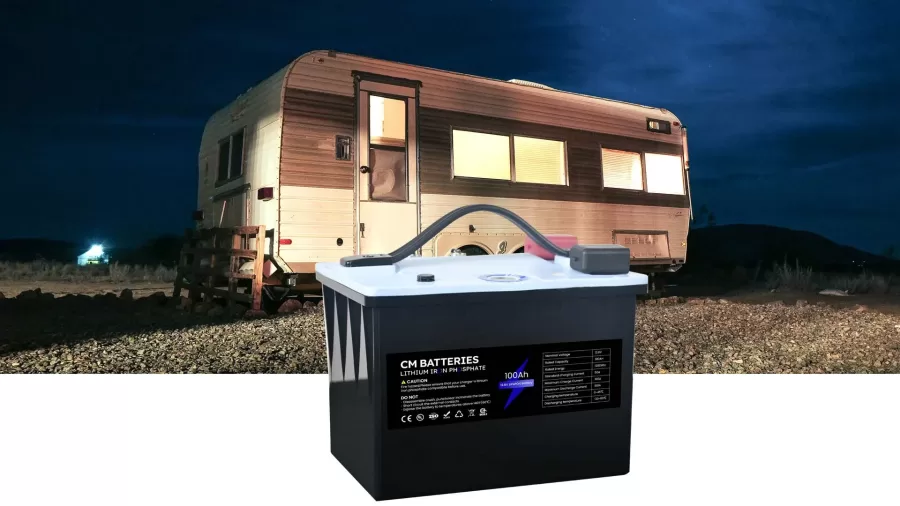
1. What are RV Batteries?
RVs are equipped with at least two batteries. One battery serves as the car starter battery, providing power to start the engine and operate the vehicle’s start system. The left battery is used to power the source for 12-volt accessories and the inverter in the living area. This battery is a deep-cycle battery, to provide continuous power to meet the electrical needs of the RV’s interior equipment and systems.
2. What are RV Batteries?
RV batteries come in various types, each serving distinct purposes and applications within the vehicle’s electrical system. The three primary types of RV batteries are starter batteries, deep cycle batteries, and dual-purpose batteries.
Starter Batteries
Starter Batteries, also called cranking batteries, can deliver a high burst of power to start the engine of the RV. Compared to the battery in your car or truck, they provide the initial surge of power needed to initiate the engine’s ignition process. They are optimized for short bursts of high burst current and are not intended for deep discharge cycles. Starter batteries are typically used in motorhomes and other RVs with internal combustion engines.
Deep Cycle Batteries
Deep cycle batteries are purpose-built to deliver long-term, sustained power, making them ideal for powering the electrical appliances and systems in an RV. These batteries are engineered to withstand repeated discharge and recharge cycles without significantly reducing their performance. Understanding the different types of deep-cycle batteries is crucial to ensure you choose the right battery for your equipment. They are typically categorized into four types: lithium-ion, AGM, gel, and flooded lead acid.
A. lithium-ion RV batteries
Lithium-ion batteries have excellent performance advantages, especially in terms of charging speed. They withstand charge rates approximately five times faster than AGM batteries with shorter charge times during your short stops on your journey. Additionally, lithium-ion batteries are remarkably lightweight and compact, optimizing space and weight distribution within your RV.
Another significant advantage of lithium-ion batteries is their ability to be fully discharged without any damage, unlike traditional lead-acid batteries. This feature provides greater flexibility and peace of mind, especially during extended off-grid adventures.
Furthermore, lithium-ion batteries boast an impressive lifespan, lasting upwards of 2,000-5,000 cycles. This longevity ensures a reliable power supply for years to come, reducing the need for frequent battery replacements and associated maintenance costs.
One of the most appealing aspects of lithium-ion batteries is their exceptional efficiency. With no discharge memory, they operate at nearly 100% efficiency, maximizing the utilization of stored energy and minimizing wastage.
B. AGM RV batteries
AGM RV batteries, also known as absorbed glass mat batteries, were initially developed for the aircraft industry in the 1980s. Originally engineered to withstand large vibrations and extreme weather conditions, AGM batteries have proven their durability and reliability in demanding environments.
Constructed with fiberglass mats that securely hold the liquid electrolyte in place, AGM batteries offer spill-free operation, even when subjected to tipping or tilting. This feature ensures peace of mind for RV travelers, especially during turbulent road conditions. Unlike lithium-ion batteries, AGM batteries are not affected by freezing temperatures, making them a reliable choice for cold-weather excursions.
In addition to their resilience to adverse conditions, AGM batteries require minimal maintenance. With the ability to be discharged up to 80% of their capacity, AGM batteries offer ample power for various onboard appliances and systems. Their robust construction ensures long-lasting performance, although they are best suited for shorter periods of off-grid use due to their shorter lifespan.
However, it’s essential to exercise caution when charging AGM batteries to prevent overcharging, which leads to irreversible damage. Proper charging practices and monitoring are crucial to maximizing the lifespan and performance of AGM batteries.
C. Gel RV batteries
Gel-cell batteries were developed as a response to the limitations associated with flooded lead-acid batteries, aiming to address common challenges while improving safety and performance. Unlike flooded lead-acid batteries, gel-cell batteries feature a sealed design with a gelled electrolyte, eliminating the risk of leakage and spillage. This sealed construction enhances versatility, allowing gel batteries to be mounted in any orientation and used in poorly ventilated areas without concerns about off-gassing. As a result, gel batteries offer enhanced safety and environmental friendliness, making them an attractive option for diverse applications, including RV power systems.
Moreover, gel batteries require minimal maintenance, offering hassle-free operation for users. With their sealed design and absence of free-flowing electrolytes, gel batteries eliminate the need for regular maintenance tasks such as electrolyte checks and refills. This convenience enhances the overall user experience, particularly for RV enthusiasts seeking reliable power solutions for their travels.
While gel batteries boast impressive charge efficiency and durability, it’s essential to highlight the importance of proper charging practices. Similar to AGM batteries, gel batteries may be damaged if overcharged. Please read carefully the specific charge profile.
They offer excellent deep cycle capabilities and are highly resistant to overcharging, making them ideal for RV applications requiring reliable and safe power storage. Gel batteries are commonly used in off-grid solar systems and other applications where maintenance-free operation and long service life are desired.
D. Flooded Lead-Acid RV batteries
Flooded lead-acid batteries are constructed with lead plates immersed in a liquid electrolyte, earning them the “flooded” designation. While these batteries are the most budget-friendly option for deep-cycle RV applications, they come with several drawbacks.
Firstly, flooded lead-acid batteries are notoriously heavy, making them cumbersome to install and transport. Additionally, their usability capacity is relatively low compared to other battery types, and they are prone to overheating during use.
Maintenance is a significant concern with flooded lead-acid batteries, as they require regular upkeep, including monthly electrolyte top-offs. These batteries release hydrogen gas while charging, posing a safety risk, and must be kept clean to prevent corrosive acid buildup.
Handling flooded batteries demands extreme caution, especially in cases of leakage, cracking, or tipping over, which can lead to hazardous situations. Proper storage is essential to prevent damage, as exposure to freezing temperatures can result in irreparable harm.
Despite these challenges, flooded lead-acid batteries exhibit tolerance to overcharging and have an indefinite shelf life if properly maintained. However, their numerous disadvantages necessitate careful consideration before choosing them for RV power applications.
E. Dual-purpose Batteries
Dual-purpose batteries are designed to serve dual functions, providing both starting and deep cycle capabilities within a single unit. Unlike dedicated starting or deep cycle batteries, which are optimized for specific tasks, dual-purpose batteries offer a compromise between the two.
These batteries feature construction elements that enable them to deliver the high burst of power required for engine starting, similar to starting batteries. Additionally, they are equipped with thicker lead plates to facilitate deep cycling, allowing them to sustain prolonged discharges without significant performance degradation.
Dual-purpose batteries are commonly used in applications where space and weight considerations are paramount, such as marine vessels and recreational vehicles (RVs). By combining starting and deep cycle capabilities into one battery, they offer a practical solution for powering both essential vehicle systems and onboard electronics without the need for separate battery banks.
However, it’s important to note that dual-purpose batteries may not offer the same level of performance as dedicated starting or deep-cycle batteries. While they provide versatility and convenience, they may not excel in either function compared to specialized battery types.
| Performance Characteristic | Starting Batteries | Deep Cycle Batteries | Dual-Purpose Batteries |
| Application | Engine Start | Sustained Power for Appliances and Systems | Combination of Engine Starting and Powering Appliances |
| Construction | Thin Plates, High Cranking Amps | Thicker Plates, Designed for Deep Discharges | Combination of Thin and Thick Plates |
| Cycling Ability | Not Suitable for Repeated Deep Discharges | Designed for Repeated Deep Discharges | Moderate Cycling Ability |
| Capacity | Lower Capacity | Higher Capacity | Moderate Capacity |
| Lifespan | Shorter Lifespan due to High Cranking Amps | Longer Lifespan due to Thick Plates | Moderate Lifespan |
| Maintenance | Minimal Maintenance Required | Regular Maintenance Required for Optimal Performance | Minimal to Moderate Maintenance |
| Cost | Lower Cost | Moderate to Higher Cost | Moderate Cost |
3. Factors to Consider When You Choose an RV Battery
When you select the best RV battery, please consider the several critical factors:
- Clarify the consumption power: First, calculate the total energy consumption of all devices you’ll be powering in terms of amp-hours (aH). You should consider the ratings of each device and estimate the energy and lasting time for the longest period without recharging.
- Care the left capacity: Regularly care RV batteries without running out of energy prematurely. Whether it’s heating your RV on a chilly night or powering essential electronics, having ample energy reserves is crucial for a comfortable experience.
- Deep Cycle: Opt for deep cycle batteries designed specifically for sustained and repeated discharge cycles. These batteries offer reliable performance over extended periods, making them ideal for powering RV appliances and systems during off-grid adventures.
- Compatibility with Solar Power Systems: If you utilize solar power to supplement your RV’s energy needs, lithium batteries are particularly well-suited for solar applications due to their high charge acceptance rates and efficient energy storage capabilities.
- Cold Weather Conditions: The RV batteries are engineered to withstand cold weather environments without sacrificing performance and ensure reliable operation in sub-zero temperatures.
By evaluating these factors, you will make a successful decision and select the best RV battery to meet your specific requirements and preferences.
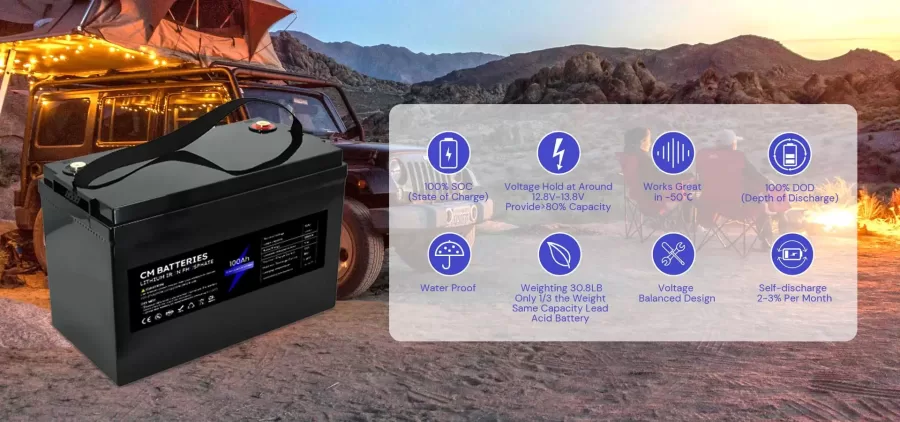
4. Tips for Extending the Life of Your RV Batteries
As a professional RV battery manufacturer, we understand the importance of properly maintaining and maximizing the performance of your RV batteries. Here are some expert tips to help you achieve that:
- Choose high-quality batteries from professional custom battery pack manufacturers who have good brand value and good word of mouth.
- Charging your battery regularly is essential to prevent sulfation, a common cause of battery degradation.
- Optimize your battery usage by running your fridge on gas whenever possible, conserving battery power for other essentials.
- Take advantage of campground power hookups to reduce reliance on your battery and enjoy access to facilities.
- Disconnect your battery when you do not use it to prevent parasitic loads from draining power and extend battery life.
- Limit the use of inverters to minimize energy loss during conversion from 12V to 240V.
- Use a generator for power-intensive appliances like hair dryers and heaters to preserve battery life.
- Install a digital energy meter to monitor battery status and ensure optimal performance.
- Regularly maintain your battery by cleaning terminals, topping up water levels (for flooded lead-acid batteries), and storing it properly during winter.
- Consider installing solar panels to supplement battery power and extend battery life both on and off the road.
Absolutely! Following expert tips for battery maintenance and investing in quality products are crucial steps in maximizing the lifespan and performance of your RV batteries.
5. What is the Best RV Battery?
Best Lithium Battery for RV – CM Batteries 12V LiFePO4 batteries
When it comes to powering your RV with the best lithium batteries, CM Batteries offers a comprehensive range of customized solutions to meet your specific needs. Our 12V Lithium Iron Phosphate batteries are meticulously designed and engineered for optimal performance in RVs, campers, and other mobile homes.
CM Batteries’ lithium batteries for RVs boast industry-leading features, including:
- High Capacity
- Self-heating function
- Durable IP68 Water and Dust Proof Protection
- Smart Battery Management System
- Auto-balancing Function for Battery Banks
- Automatic Energy Saving Mode when not in use
- Remote Monitoring Functionality
- 80% Depth of Discharge without Reducing Battery Lifespan
- 3-5 Year Product Warranty (REGO)
- And more…
Here are some of our top-selling RV lithium batteries:
12V 100Ah Smart Lithium Iron Phosphate Battery
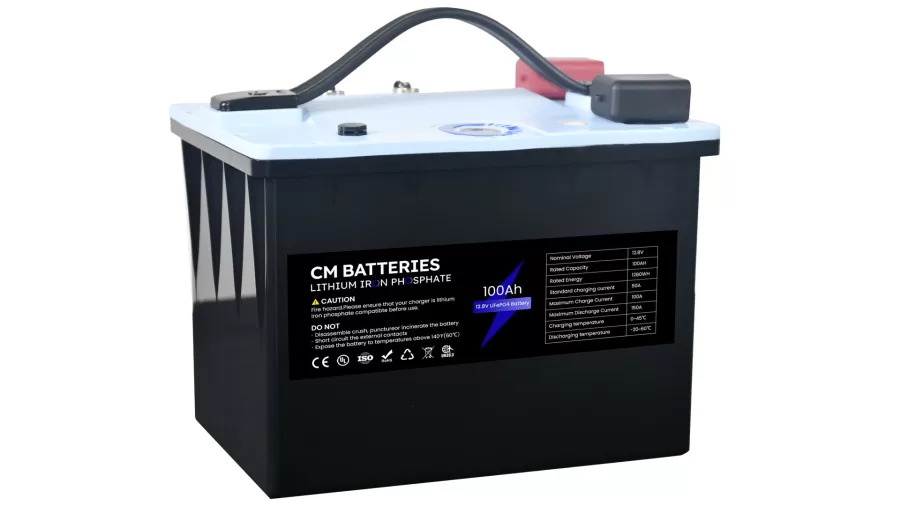
Ideal for RV applications, this high-quality battery offers ample storage capacity of approximately 1.2 kWh, making it perfect for emergent backup power usage. With its compact size, it takes up to 15% less space compared to other battery types, ensuring efficient utilization of space in your RV.
12V 200Ah Lithium Iron Phosphate Battery (Bluetooth)
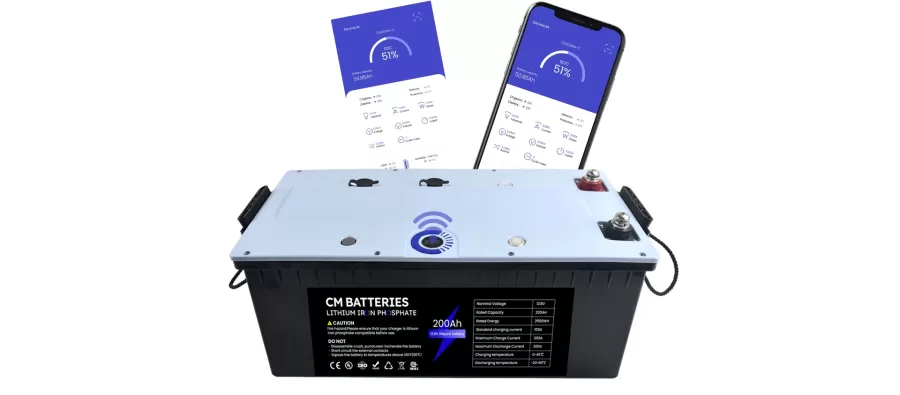
Designed to replace deep-cycled lead-acid batteries, this battery delivers outstanding performance even under varying loads. Equipped with built-in automotive-grade battery cells, it ensures reliability and durability for your RV power needs. Additionally, its Bluetooth 5.0 technology enables stable and high-quality data transmission for seamless monitoring.
12V 100Ah Smart Lithium Iron Phosphate Battery ( Self-Heating Function)

Combat freezing weather conditions with this innovative lithium battery featuring a self-heating function. Activated when the temperature drops below 41°F, it ensures optimal performance even in cold climates, providing peace of mind during your RV adventures. For more details, see this article for more details on self-heating LiFePo batteries.
If you are looking for more solutions with other features, such as waterproofing, contact CMB’s battery pack consultant today. As a leading custom lithium battery pack manufacturer, we understand the evolving needs of RV enthusiasts. We strive to provide tailored lithium battery solutions that optimize performance, durability, and overall value for our customers, ensuring a reliable power source for your RV adventures.
6. FAQs about RV Batteries
Can I use car batteries in my RV?
Car batteries can indeed be installed in your RV, either as starter batteries or “House” batteries. However, it’s essential to note that their capacity may not be sufficient for prolonged use or optimal performance. It’s best to match the battery to the application for the most satisfactory results.
What are the signs of a failing RV battery?
When your RV battery is failing, you may observe flickering lights or experience a depletion of AC power during usage. Additionally, you might notice a distinctive odor of rotten eggs emanating from the battery, indicating potential issues.
Can I use a portable generator to charge my RV Battery?
Yes, portable generators or solar panels can effectively charge RV batteries. However, it’s important to note that if the battery is significantly depleted, it may take several hours to achieve a full charge.
Can I replace my RV Battery with a lithium battery?
Certainly, in most cases, you can replace your RV’s AGM/lead-acid battery with a lithium-ion RV battery. Lithium batteries offer advantages such as being more economical, safer, and more durable. However, it’s crucial to ensure that your RV has a lithium battery charging profile to accommodate the new battery type effectively.


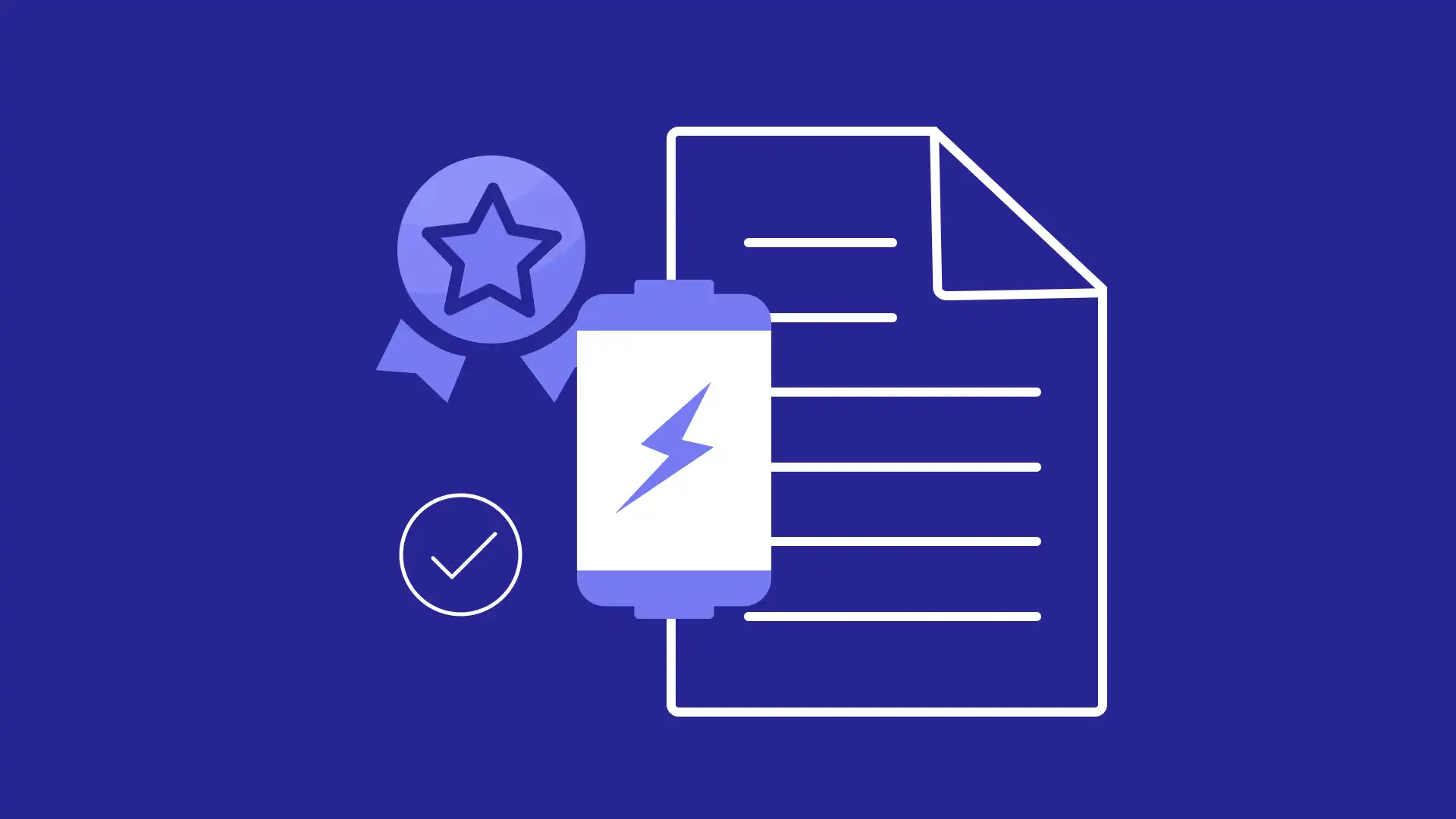
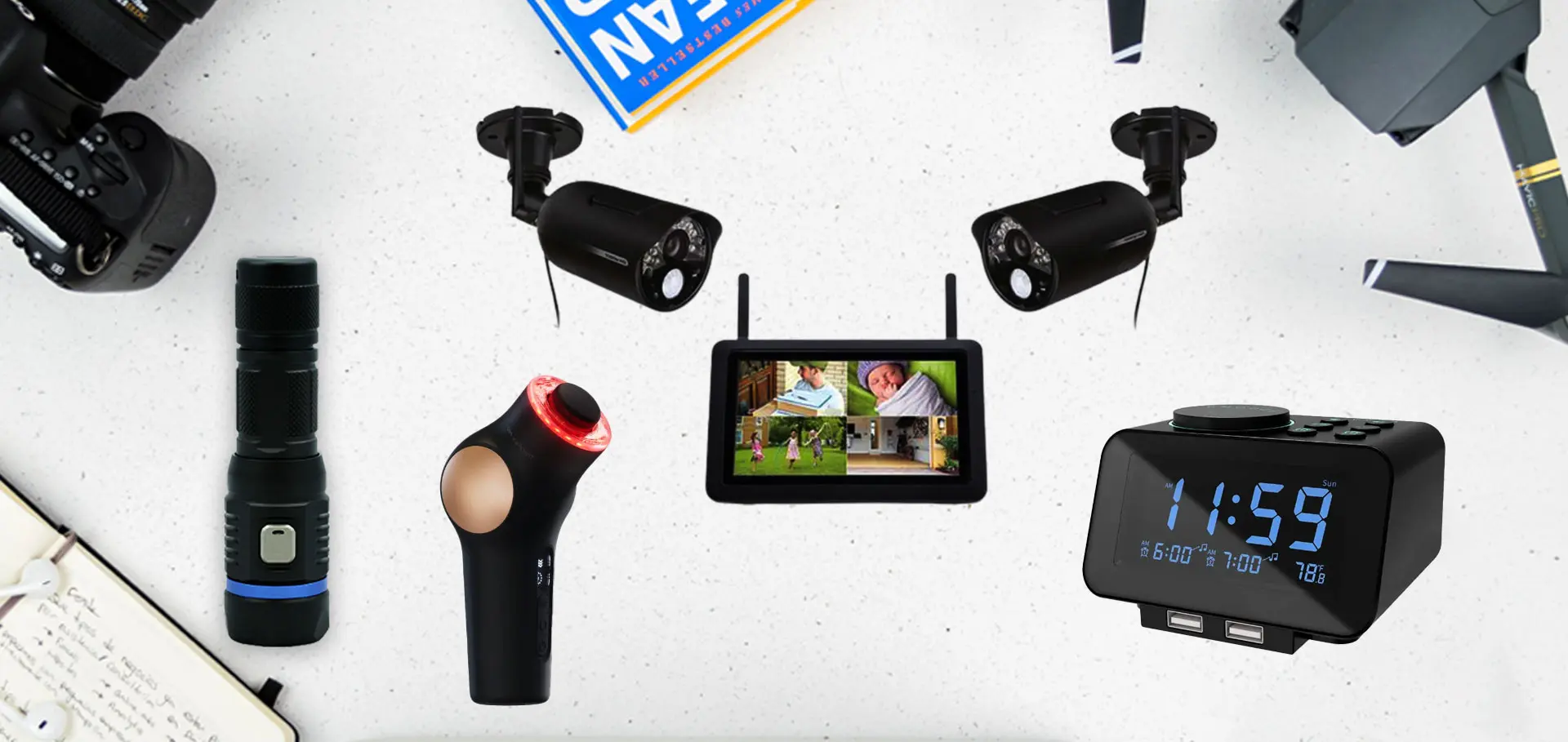
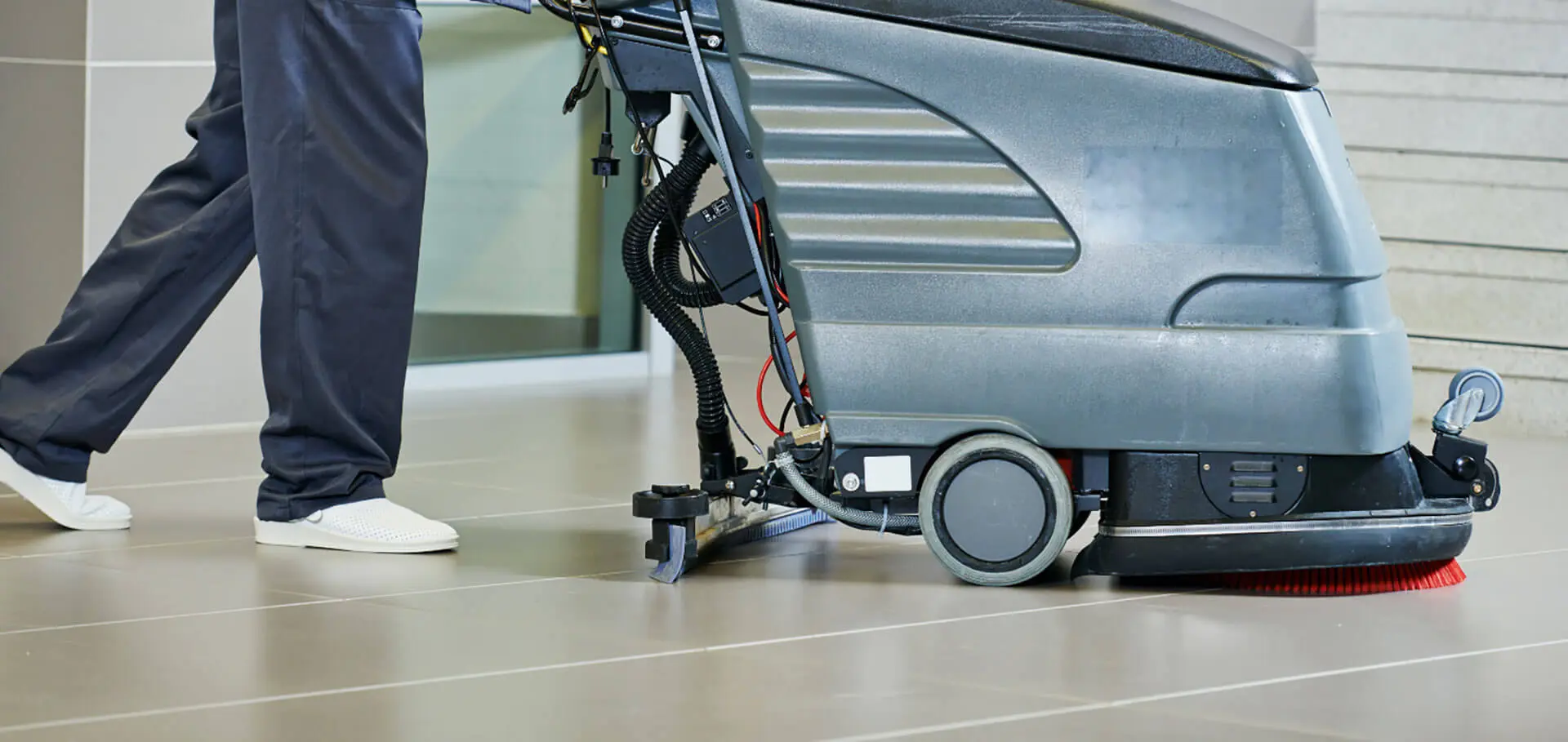
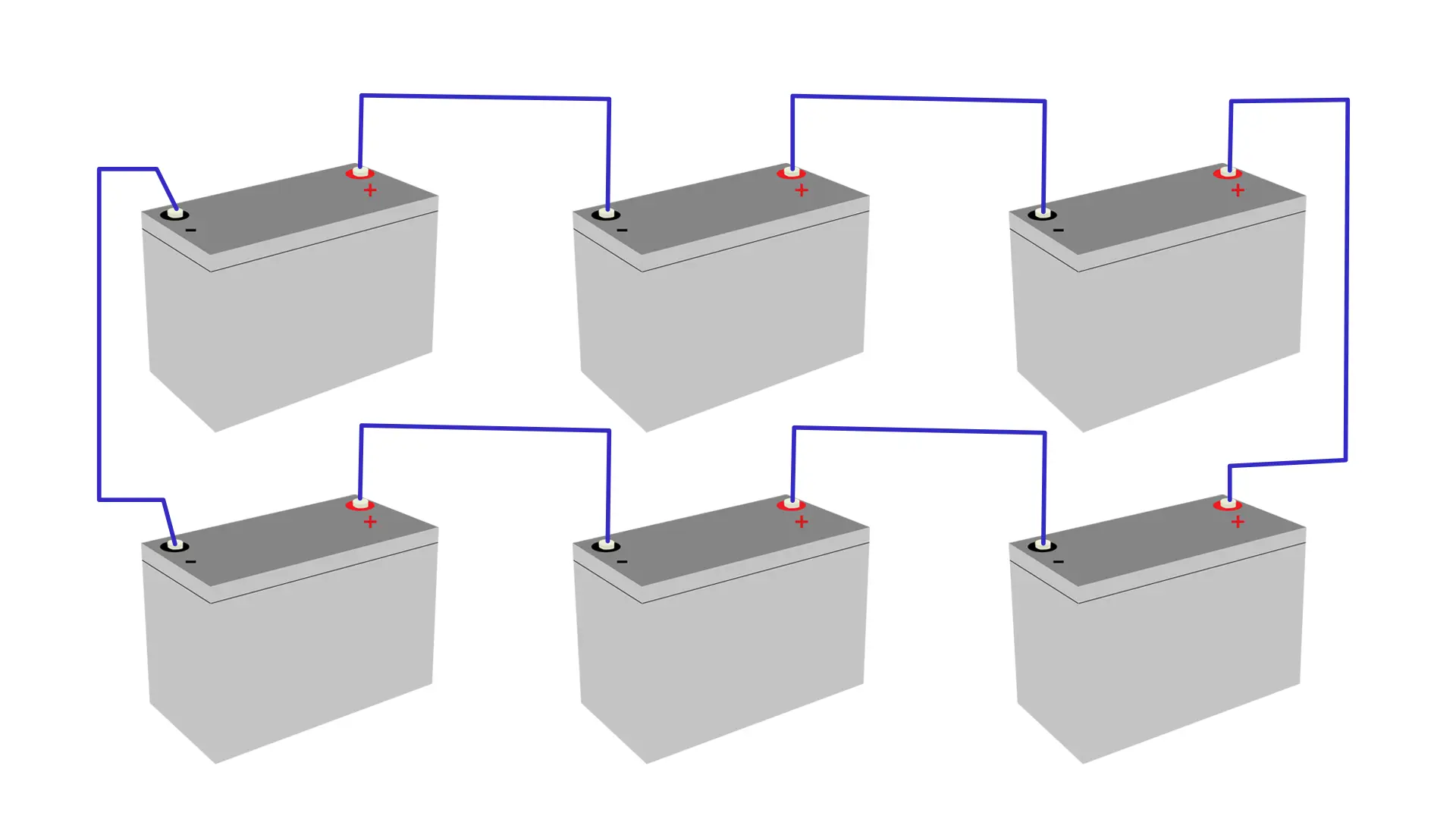
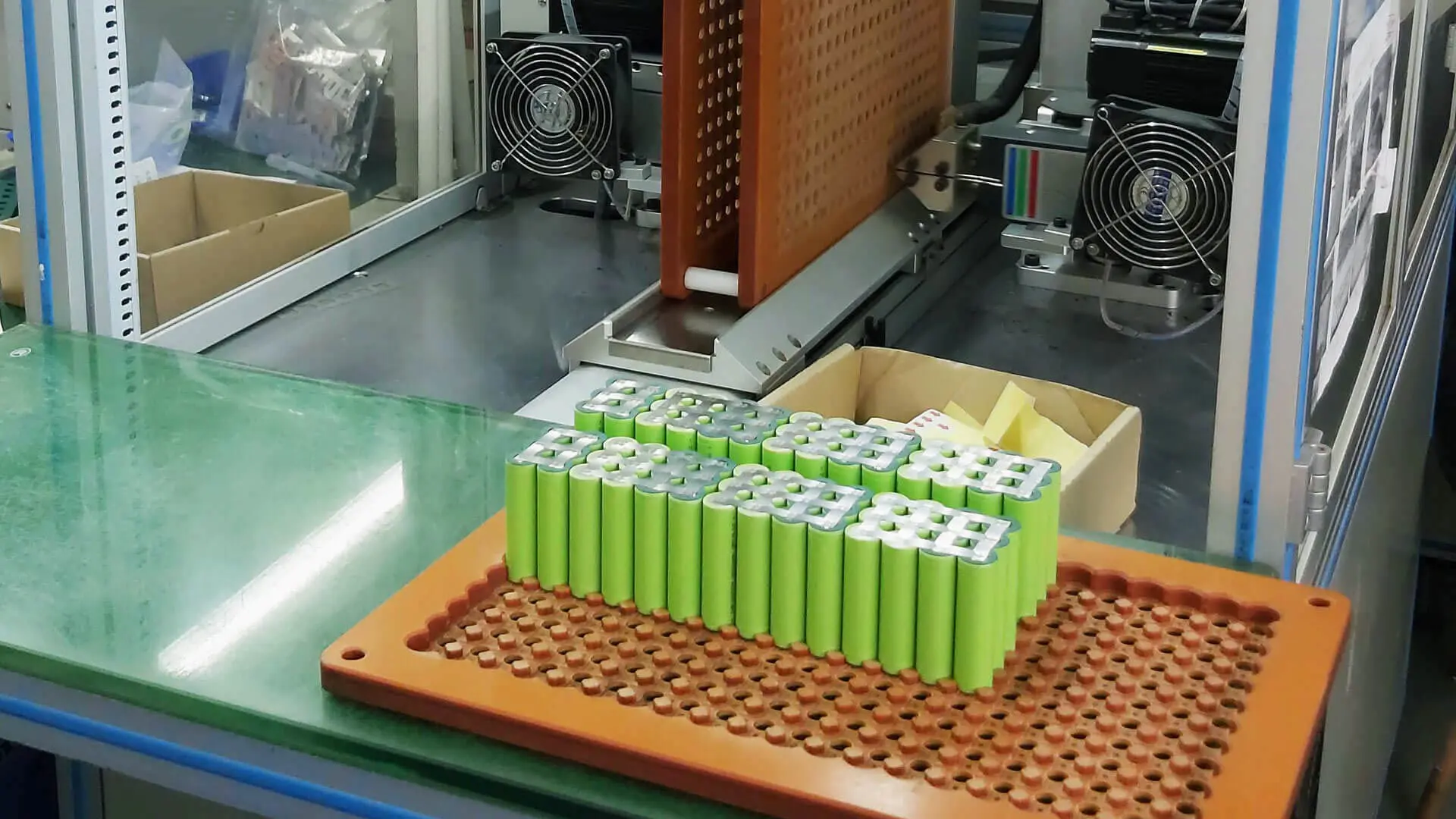
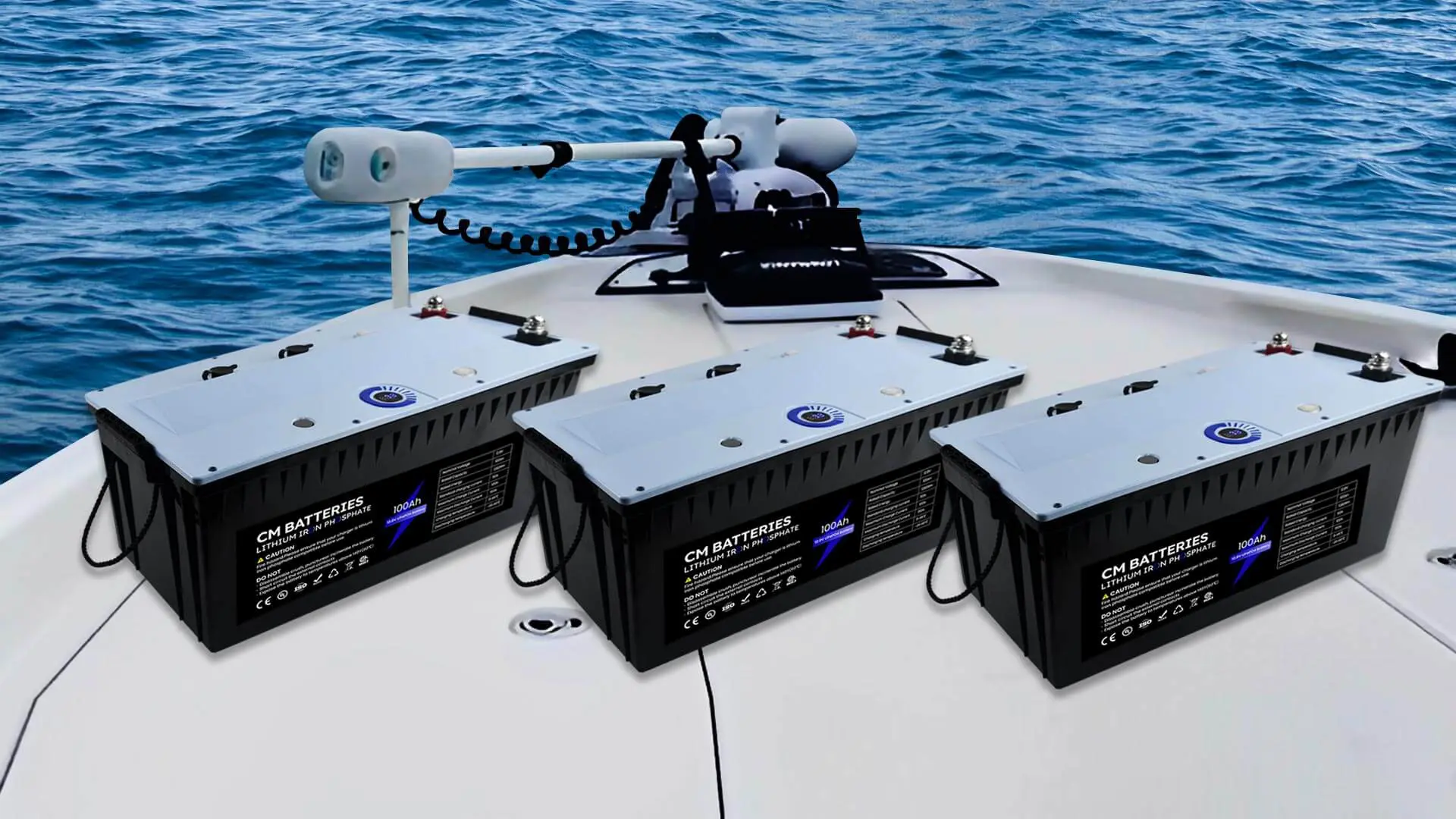
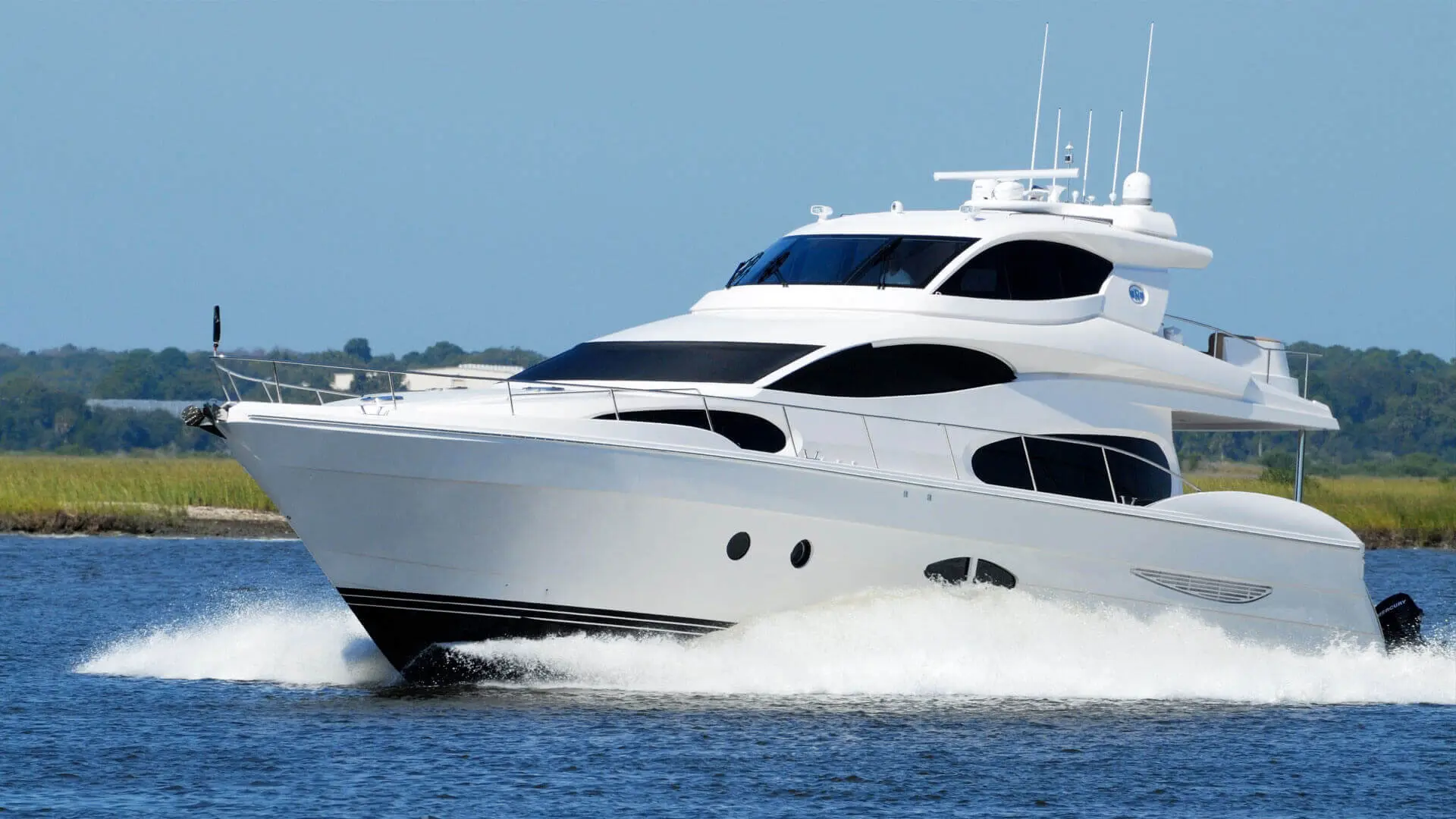



One thought